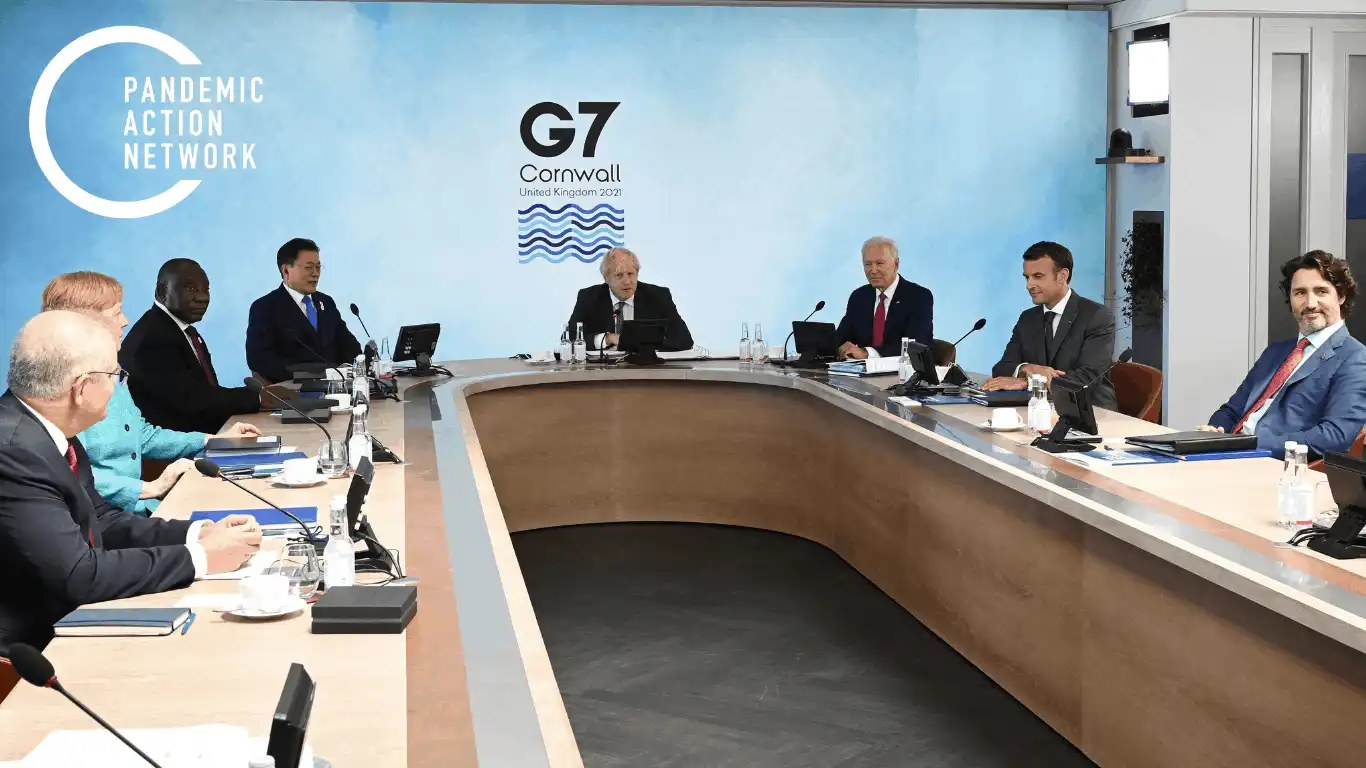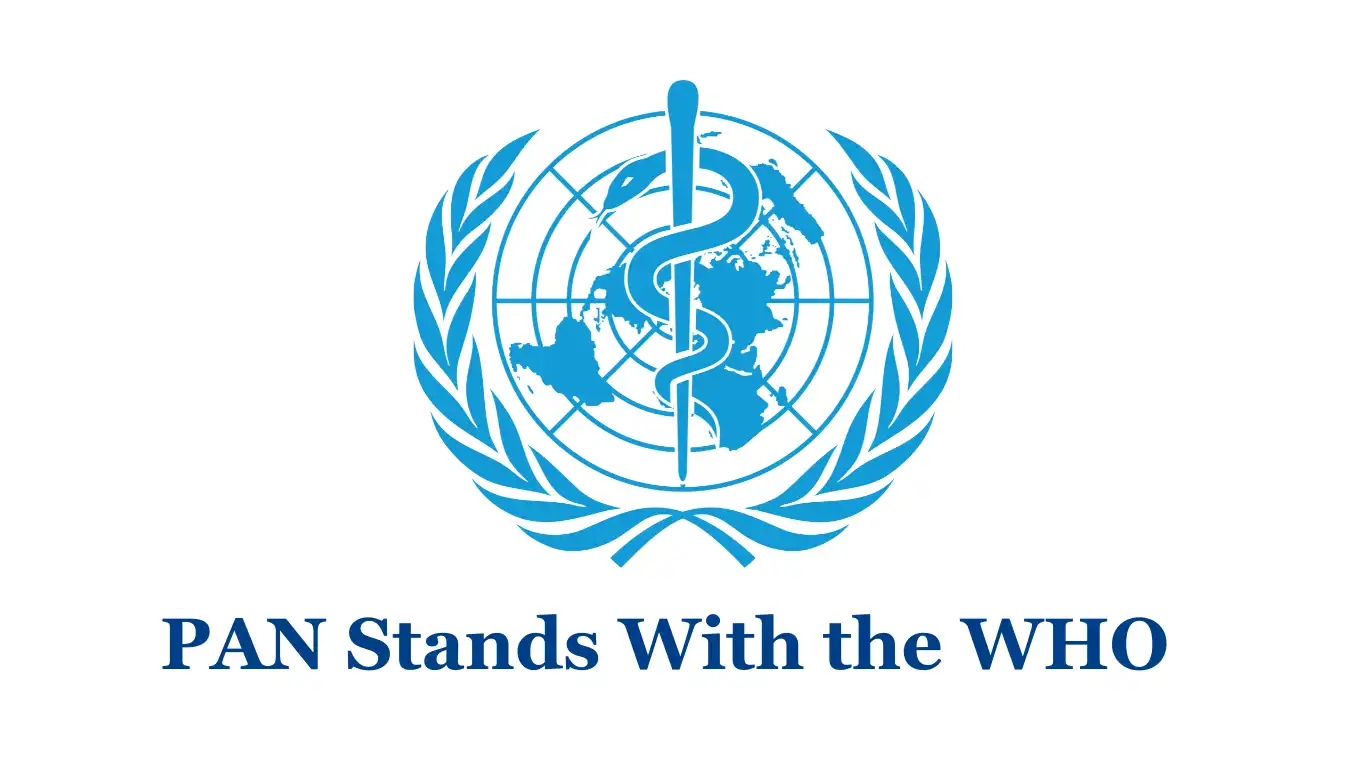By Isabelle De Lichtervelde, Senior Program Officer, Policy & Advocacy
Last week, I wrote about our hopes and asks for the G7 Leaders’ Summit. At their annual gathering, G7 leaders faced two choices: they could either decide to take the fight against COVID-19 to another level and agree on a comprehensive global plan to end the pandemic everywhere for everyone or choose to continue with the piecemeal approach that has characterized the global response until now. Distracted by domestic issues, such as Brexit, they sadly went for the latter. The G7 communiqué contains a lot of warm words such as “a collective goal of ending the pandemic in 2022” and a commitment to both “strengthen global action now to fight COVID-19, and to take further tangible steps to improve our collective defenses against future threats and to bolster global health and health security”, but very little action to turn these statements into reality.
Here are some of our main take-aways (for a line-by-line emoji-based assessment of the health and development portions of the communiqué, click here):
- On dose sharing, with the exception of the U.S. pledge to purchase 500 million Pfizer doses, the collective level of ambition failed to meet the urgency of the moment. G7 leaders committed “to share at least 870 million doses directly over the next year” and to “make these doses available as soon as possible and aim to deliver at least half by the end of 2021 primarily channelled through COVAX towards those in greatest need”. This is far from enough. Dose-sharing is urgently needed NOW, not as a long-term solution, but to plug the significant vaccine supply gap in low- and middle-income countries (LMICs) caused by rich countries massively overbuying doses. Our ask is one billion doses by the end of August and at least two billion doses by the end of 2021. According to publicly-available data, G7 countries have bought three billion more doses than they need to fully vaccinate their entire population to 70%. On top of that, the pharma company’s own data shows that there will be 5 billion doses in circulation by the end of August and a staggering 11 billion doses by the end of the year. Yet, G7 leaders have only agreed to share 870 million doses over the next 12 months. According to a new analysis, this will provide only enough doses to vaccinate 10.3% of the population in LMICs.
- While COVID is still raging, particularly in countries in need, the G7 didn’t make any new financial commitments to end COVID globally. ACT-A is still facing a US$18.1Bn funding gap and the latest estimates anticipate that it will cost at least US$50-66B to fully vaccinate the world — and likely much more when end-to-end delivery costs are factored in. Yet G7 leaders simply claimed pledges made in the past, without any concrete action to finance a global roadmap to end the pandemic in the coming months.
- On a slightly more positive note, the G7 supported the extension of ACT-A and increased transparency on procurement and delivery data for both donor and recipient countries. The communiqué reads “efforts on this scale require close monitoring of progress made by ACT-A with reliable, transparent, up-to-date and clear information on procurement and delivery to both donor and recipient countries in close partnership with regional organizations. Progress should be reported to the G20 in Rome.” We need total transparency around vaccine production in order for the world to be able to get COVID-19 under control — see our transparency guidelines here. The Network will follow this important issue and continue to push for progress at the G20 meeting later this year.
- On pandemic preparedness, the G7 outcome document is full of positive language but very little action, including around financing mechanisms for pandemic preparedness. The G7 committed to “explore options for building consensus this year, around sustainable global health and health security financing, supported by robust financial reporting, increased and defined accountability, and oversight”, — a potentially positive baby step toward having a catalytic, sustainable, and multilateral financing mechanism that is dedicated to promoting pandemic preparedness and prevention.
To quote the Network’s co-founder, Eloise Todd, “in footballing terms, the G7 had the ball in front of the net, open goal, and they skied it.” The consequence of this disappointing G7 Summit will be a prolonged pandemic, with more lives lost around the globe.
When will someone finally demonstrate the political leadership needed to end this pandemic?



